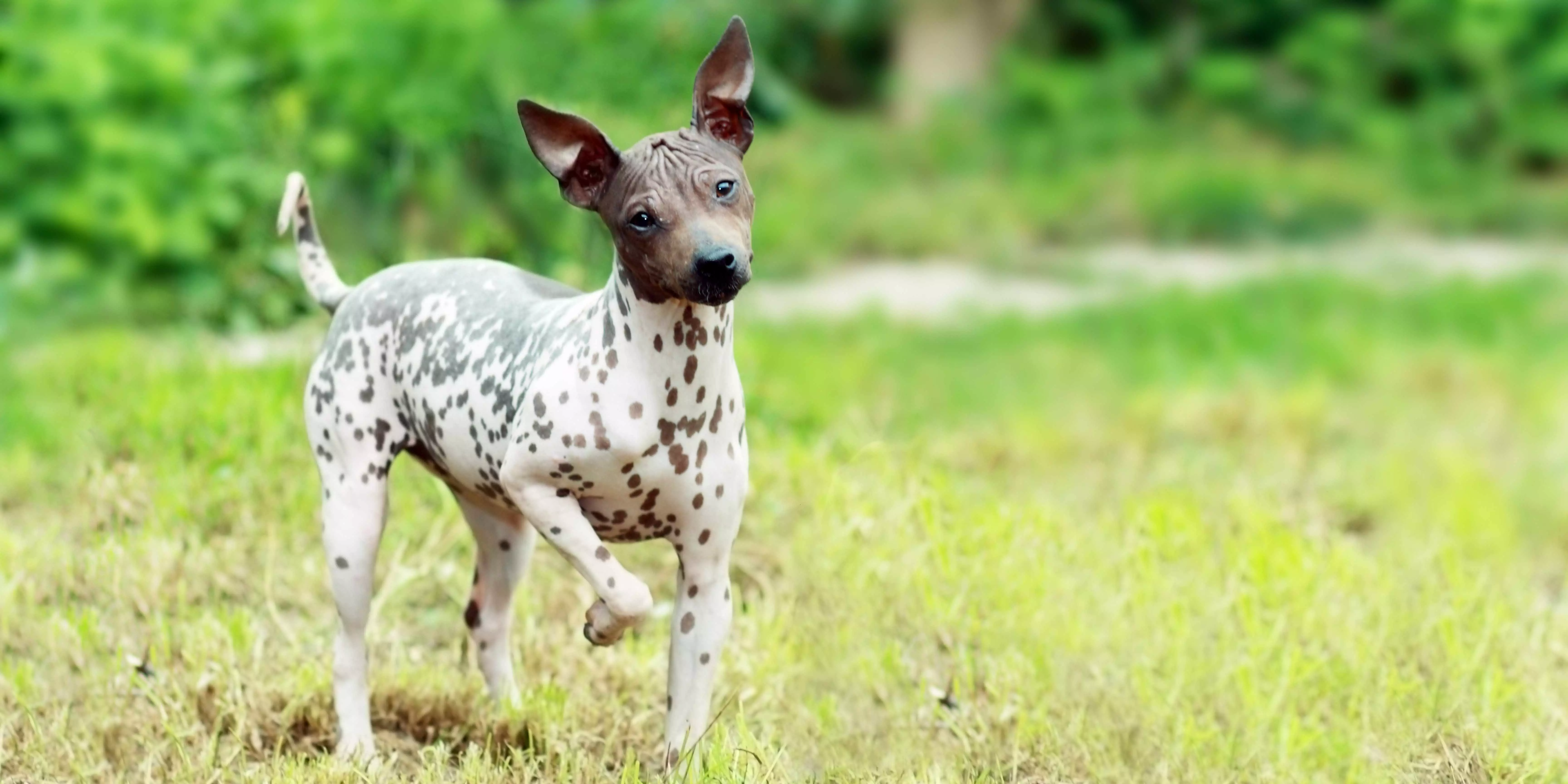
About this breed
The American Hairless Terrier, a Louisiana native, is a smart, inquisitive, and playful dog that comes in hairless and coated varieties. He is a fine choice for allergy sufferers who want a dog with true terrier grit and courage.
The American Hairless Terrier stands between 12 to 16 inches at the shoulder, and comes in both coated and hairless varieties. The hairless variety might have eyebrows and whiskers, while the coated has a short, shiny coat. The skin of the hairless is smooth and warm to the touch. The broad, wedge-shaped head is a hallmark of both varieties. Erect, V-shaped ears frame the round, expressive eyes that gleam with curiosity.
The American Hairless moves with jaunty pep in his step that announces real terrier attitude. The hairless variety is as hypoallergenic as a dog can get. Hairlessness, though, presents its own challenges. Sunburn is a concern, and cold weather requires special precautions. This breed is protective of their humans and make alert watchdogs.
How friendly is this breed towards people they don't know? Some breeds love to meet new humans and become their new best friends. Other breeds may be more cautious around people they don't know.
How likely is this breed to enjoy playtime? Some dog breeds can wait for playtime, eager for the next game of fetch. Other breeds just want to chill on the sofa with their favorite human.
Will this breed be a good watchdog? Some dog breeds react strongly to potential threats and will alert you to anything from an intruder to a squirrel in the yard. Others are happy to welcome anyone in, meaning they probably won't alert you to any danger.
How well can this breed adapt to changes in its life? Some breeds are happy to go with the flow, and won't be bothered by changes in noise, schedules, or living conditions. Other breeds may do better with consistency.
How much does this breed tend to drool? Some breeds can leave drool on your hand, clothes, and furniture. If the thought of a big slobbery kiss from your pooch isn't appealing, you might want to stay away from breeds prone to drooling.
How often will this breed require grooming? Whether you are doing it at home or paying a professional, some dog breeds have higher grooming needs and will need their coats maintained on a regular basis. That can mean more of your time and money to keep your pet looking its best.
Is this breed going to shed a lot? Some breeds will shed more than others and may require more brushing and grooming. Those that shed may be harder on allergies, too, and you might find yourself cleaning up left-behind fur or hair more often.
Is this breed good for families or better suited for individuals? Some dogs are happy to bond with the entire family and enjoy spending time with each member. Other breeds prefer the company of their owner and may be standoffish with others.
Is this breed good with children? Some breeds are tolerant of children and patient with loud noises and grabbing hands. Other breeds might be better off with an adults-only household. No matter the breed, you should always watch your dog around children.
Is this breed good around other dogs? Some dogs are better at getting along with canine companions while others prefer the company of humans. You should always keep an eye on your dog when introducing them to new animals.
Does this breed need a lot of mental stimulation? Some breeds, especially those bred for a specific purpose such as herding, may need more mental stimulation than other breeds. That means they need challenges to solve, decisions to make, and other ways to exercise their brains as well as their bodies.
Is this breed easy to train? Some breeds catch on to things like house-training and new tricks quite easily, eager to earn their owner's praise and maybe a treat or two. It may take more time and patience to train other breeds.
How much energy does this breed typically have? Some dog breeds have a lot of energy, meaning they'll need more exercise to keep them happy and healthy. Other breeds are happy to chill on the sofa and take a nap.
Is this breed likely to make a lot of noise? Some breeds love to bark, howl, and vocalize to their owners. They might bark at a stranger or howl for their dinner. Other breeds tend to be more quiet, only using their voice when they really need to.